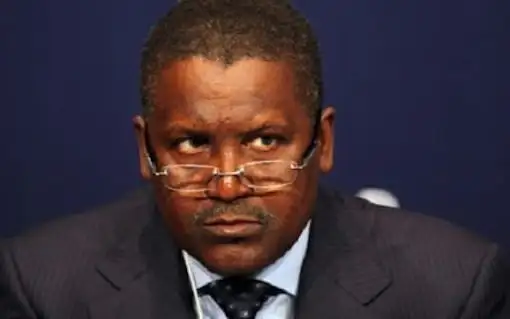

Last updated on September 11th, 2021 at 03:02 pm
Dangote Cement exports from Nigeria to neighbouring countries fell 41% in 2019 when Nigeria’s government closed the land borders.
The development has made the dominant cement company in Africa move its exports to Congo Republic, producing from plants in those countries.
Nigeria shut its land border in August to curb the smuggling of rice to neighbouring states where it sells for more and an illegal arms trade. The closure has also hurt other Nigerian businesses, including cement exports, and stoked inflation.
Joseph Makoju, Dangote’s outgoing chief executive, said the border closure led exports to drop to 0.5 million tonnes in 2019 from 0.7 million tonnes in both 2018 and 2017. He said the company had exported to West and Central Africa from Nigeria.
Makoju said total production volumes last year were flat at 14.1 million tonnes. Higher discounts, marketing and haulage cost caused core profit to fall 9.1%, while margins slid 59.2%, he said.
In February, Dangote Cement appointed ex-head of Lafarge Africa Michel Puchercos as its new chief executive, Makoju said.
“We undoubtedly faced several challenges last year,” Makoju told an analyst call. “We are very optimistic about the market in 2020 and we expect to see some increase especially for infrastructure project.”
Dangote now plans to commence export of clinker, the main raw material to make cement, from Congo in 2020 and promote its Nigerian production more heavily to support growth.
The company said it planned to commence a share buy-back programme this year once it obtained regulatory approval and said it was actively considering a London listing with its long-delayed London IPO still “under review”.
Share price for Lagos-listed Dangote Cement, Nigeria’s biggest listed company, was quoted at 170 naira on Wednesday, a 41% drop from its peak of 286 naira two years ago.
Shares across Nigeria’s stock market has tumbled in the last two years. The oil-reliant economy has been stuck with low growth since it emerged from a 2016 recession.
Pope Francis, the first Latin American pope of the Roman Catholic Church, passed away in the morning of his 88th…
You want to pick a good film for weekend relaxation? Netflix South Africa provides customers with a wide range of…
The 2025 edition of AFCON will be hosted by Morocco which serves both the high-level competition and as a catalyst…
The Christian community marks Good Friday as its deepest holiday to remember when Jesus died at Calvary. The Christian community…
Art has the potential to take the talents from any regions across the globe, and this world has witnessed one…
Thousand of users worldwide face a discontinuation of WhatsApp services on older Android versions as Meta has officially announced this…
This website uses cookies.